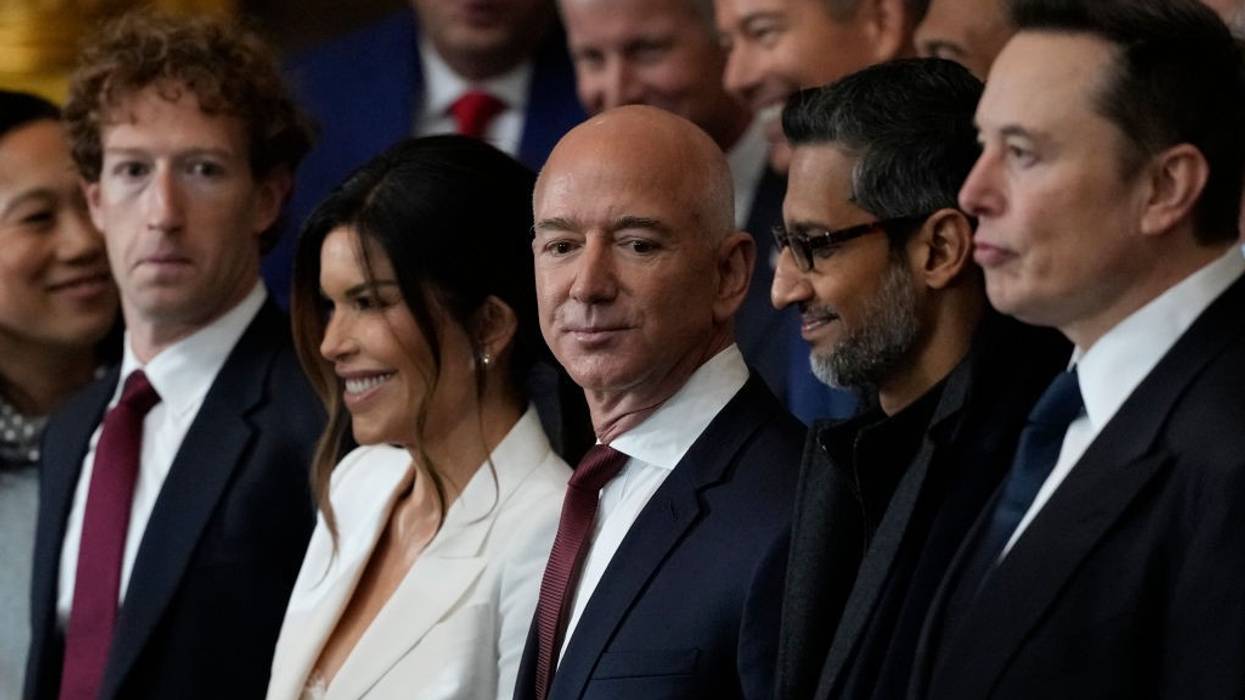The First Year of Trump's Second Term Was Terrific—for US Billionaires
Over 2025, the combined wealth of all US billionaires climbed to $8.1 trillion, a 21% increase over 2025, up from $6.7 trillion exactly a year ago.
The first year of the Trump administration was a very happy new year for the US billionaire class. The richest 15 billionaires, all with assets more than $100 billion, saw their combined wealth surge 33%, from $2.4 trillion to $3.2 trillion. This is double the growth of the S&P 500 over 2025, which was 16.4%.
Over 2025, the combined wealth of all US billionaires climbed to $8.1 trillion, a 21% increase over 2025, up from $6.7 trillion exactly a year ago.
Based on an Institute for Policy Studies analysis of data from the Forbes real time billionaire list from 2025, there are 935 billionaires in the United States with combined wealth totaling $8.1 trillion at the close of 2025 markets. This is an increase from 813 US billionaires at end close of 2024 markets, with combined wealth of $6.7 trillion.
The richest three American wealth dynasties—the Waltons, Mars, and Koch families—saw their wealth accelerate from $657.8 billion to $757 billion in one year.
Many top billionaires have seen their wealth surge during and after the Covid-19 pandemic at the beginning of 2020.
[Note: Bloomberg reported global billionaire wealth increased $2.2 trillion over 2025, in an analysis released several days before the market closed at 4:00 p.m. on December 31, 2025. The market fluctuated considerably in the final days of 2025.]
The top five current billionaires and their individual wealth on January 1, 2026, compared to January 1, 2025:
- Elon Musk of Tesla/X and SpaceX with $726 billion, up from $421 trillion a year ago.
- Larry Page of Google, with $257 billion, up from $156 billion a year ago.
- Larry Ellison of Oracle fame with $245.billion, up from $209 billion a year ago.
- Jeff Bezos of Amazon with $242.billion, up from $233.5 billion a year ago.
- Sergey Brin of Google with $237 billion, up from $148.9 billion a year ago.
The three wealthiest dynastic families in the US hold an estimated $757 billion, up from $657.8 billion at the end of 2024, a 16% gain. These are:
- Walton. Seven members of the Walton Family with combined wealth of $483 billion, up from $404.3 billion a year ago.
- Mars. Six members of Mars family with combined wealth of $120 billion, down from $130.4 billion a year ago.
- Koch. Two members of Koch family have a combined wealth of $154.8 billion, up from $121.1 billion a year ago.
Wealth Gains Since Beginning of Pandemic
Many top billionaires have seen their wealth surge during and after the Covid-19 pandemic at the beginning of 2020.
On March 18, 2020, Elon Musk had wealth valued just under $25 billion. Less than five years later, at the end of 2025, Musk’s wealth is $726 billion, a dizzying 2,800% increase from before the Covid-19 pandemic.
Jeff Bezos saw his wealth rise from $113 billion on March 18, 2020 to $242 billion at the end of 2025.
Three Walton family members—Jim, Alice, and Rob, saw their combined assets increase from $161.1 billion on March 18, 2020 to $378 billion at the end of 2025.


